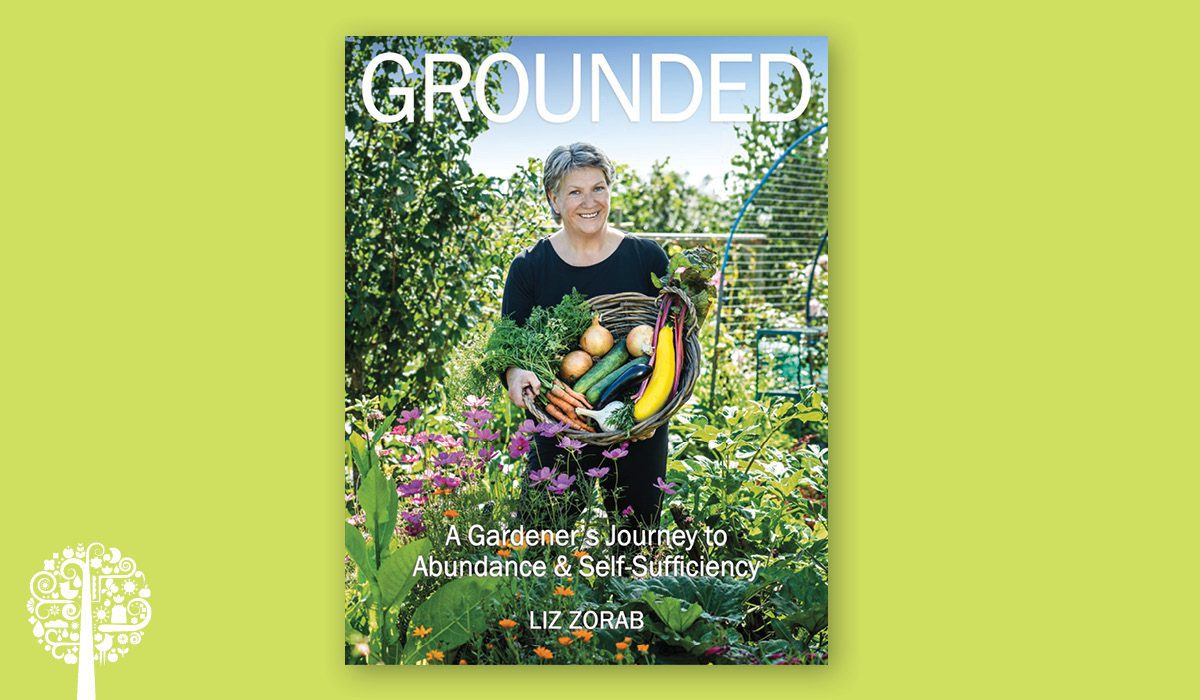About six years ago, Liz Zorab knew that something wasn’t right. She had gained weight, her hearing and vision were suffering, and her hair was falling out. Her health was rapidly deteriorating; she had no energy and spent 23 hours a day in bed. A trip to the doctor confirmed severe thyroid and mineral deficiencies, Raynaud’s disease, and a weak positive result for Lupus. The devastating diagnosis came while searching for a new place to live in the English countryside.
Finding ‘The One’
In November 2015, Zorab and her partner, whom she refers to as “Mr. J”, fell in love with a house on three-quarters of an acre in Monmouthshire in South East Wales. Zorab wondered if she was mad taking on a property of that size when she needed canes to move around, but the pull she felt toward the property was too strong to ignore. The purchase ended up being the best thing she could have done for her health, mentally and physically.
The Journey to Self-Sufficiency
In the years that followed, Byther Farm was born. Zorab and Mr. J became more self-sufficient with the planting of a fruit and vegetable garden. The journey wasn’t easy; Zorab’s health problems meant only so much could be done at a time, and at first, the soil under their feet was virtually lifeless. In nine shovelfuls of earth, they found only three worms. Permaculture principles helped the couple bring new life to their property. They started compost heaps and began adding plenty of organic matter to the soil. Hedgerows that include wild rose, purple willow, elderberry, blackthorn, and more encourage biodiversity; birds and insects of all kinds have since moved in. Zorab integrated small livestock onto her landscape with chickens and now some beloved ducks that do an excellent job of eating slugs and snails. No-dig gardening ensures that the soil structure is preserved, and crop interplanting has helped with pest control; no toxic chemicals are used on the farm.
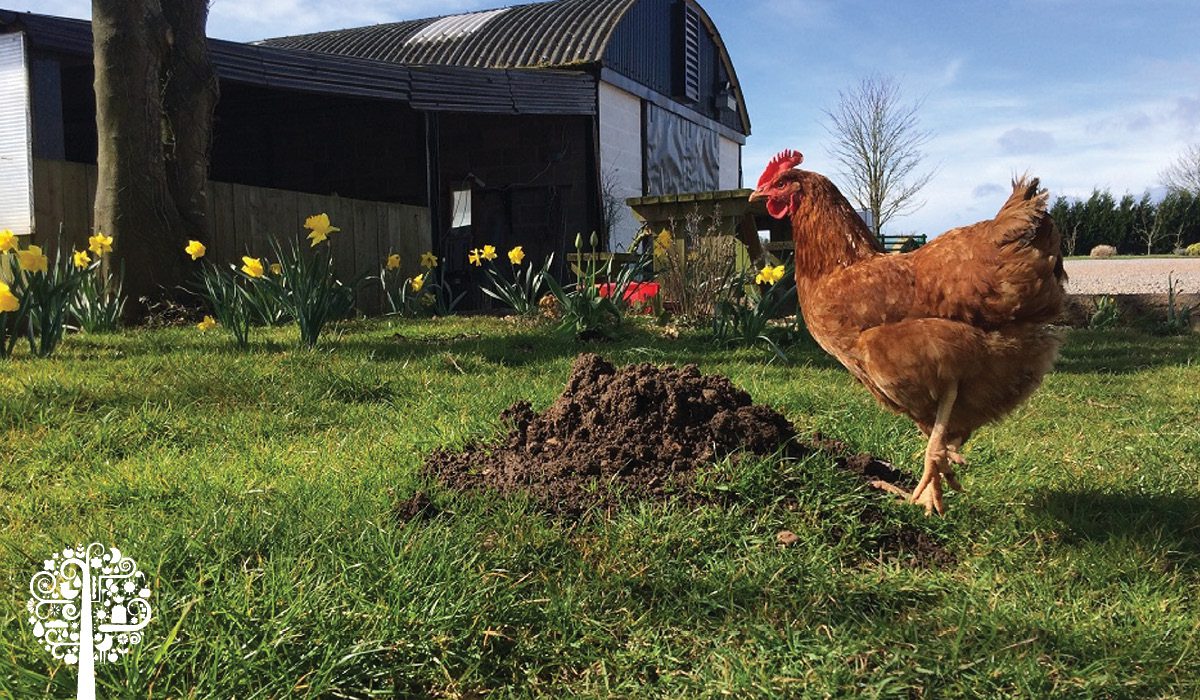
Zorab’s gardens are multi-purpose with multiple layers. She maximizes existing water flows and works with nature, never against it. She and Mr. J have transformed their plot of land from a grassy paddock into a lush landscape brimming with trees, shrubs, and native flowers. An abundance of beans hang beautifully from trellises, and pollinators buzz happily through raised beds and polytunnels overflowing with other nutritious fruits and vegetables, enough to feed the couple and plenty of their neighbors. Byther Farm offers a small CSA vegetable scheme where subscribers can feel good about how and where their food is grown.
Healthy Food, Healthy People
As her gardens have progressed, so has Zorab’s health. She gradually gained more energy, and the fresh foods she consumes have given her body the nutrients it needs to recover, replacing some medications. When grown right, food truly is our medicine.
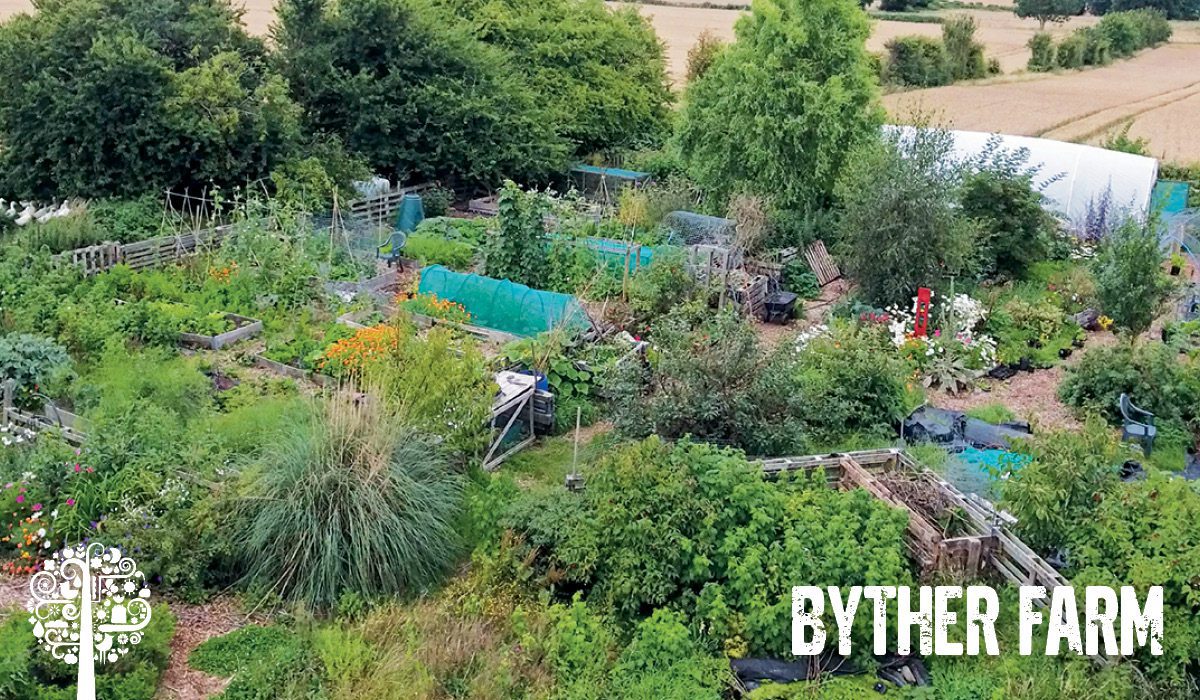
What Zorab and Mr J have achieved on less than an acre of land is astounding Zorab has documented her journey on her blog and in her new book, Grounded: A Gardener’s Journey to Abundance and Self-Sufficiency. The beautifully photographed pages offer insight and tidbits on how gardeners of all skill levels can accomplish their growing goals using regenerative agricultural practices. Throughout the book, Zorab shares deeply personal experiences about her health struggles; readers will want to find out if she will be okay. But most of all, Zorab’s book proves that we are all capable of succeeding in the garden. We will all face various hurdles and obstacles in our growing ventures, but with some heart, work, and willpower, we all have it in us to overcome these challenges. Zorab’s story is inspiring, and her book is a must-read; until you have the chance, we chatted with her about Grounded and life on Byther Farm.
Q: You say you tend to your garden by instinct. Do you think everyone has that instinct and is it something we can develop?
I think everyone has the potential to grow instinctively. The wisdom of previous generations and other cultures; the tried and tested skills and knowledge handed down to us are valuable and useful tools to guide us through the steps and stages of tending a garden and stewarding a growing space. Knowing some of those rules, a little about how plants grow and what they need to thrive, allows us the freedom to experiment and to find out what works in our own particular growing spaces. I feel the more we get to know the space we grow in, how the air and water move across that space, the soil and the plants, the more we can use our gut instincts.
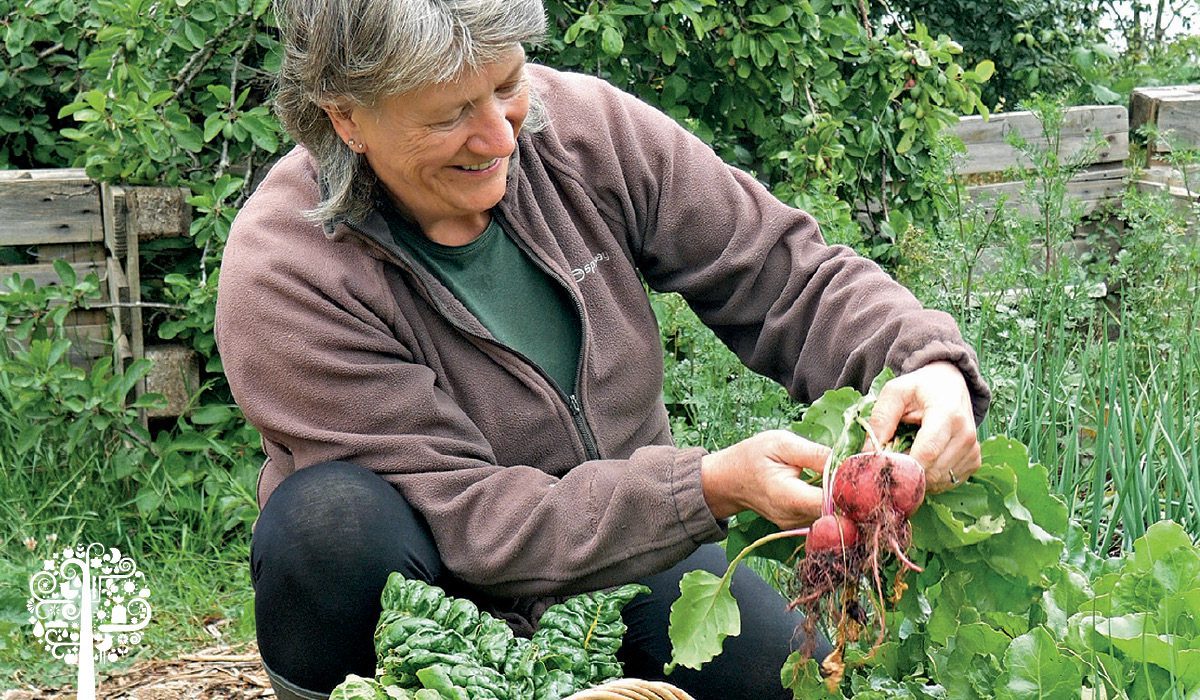
Q: You talk about “noticing things” in your book, and how as a gardener, that’s a valuable tool. Observation is critical in permaculture practices.
It’s the number one principle. It’s the first and last tool I use in the garden, at home, out and about. Seeing what is around us, taking time to really look and understand is the key. So many of the changes, the adjustments and improvements that I’ve made in the garden resulted from observing, assessing, trying something slightly different and observing again. The quiet time I spend in the garden is mostly for observation and reflection: the more I notice, the more I can see how the elements work together.
Q: Is it possible to create a “food forest” and thriving organic gardens without breaking the bank?
Absolutely! We had a very small budget when we moved here; everything had to be done at a minimal cost. I sourced trees, shrubs and perennials from supermarkets, free listing sites and donations from friends. I swapped plants with neighbors and propagated as many plants as I could. This doesn’t make an instant garden, but that instant fix doesn’t happen in the natural world either. Slower, smaller changes allow us to observe and understand their impact on our gardens and the environment around us.
Q: Do you have plans to expand your CSA beyond 20 boxes, or are you keeping it very small-scale?
The autumn and winter have been very tough for so many of us, and this year, my SAD (Seasonal Affective Disorder) has taken longer than usual to start lifting. Recognizing and acknowledging that I am struggling with depression is an important part of approaching the work on our homestead. This year, I have chosen to put less pressure on myself and concentrate on growing food for the family and a handful of veg box customers who have been with us since the start. Far from being a step backward, I see this as an affirmation that I am learning how to be responsive, take responsibility for my own welfare, and care for myself for the longer term.
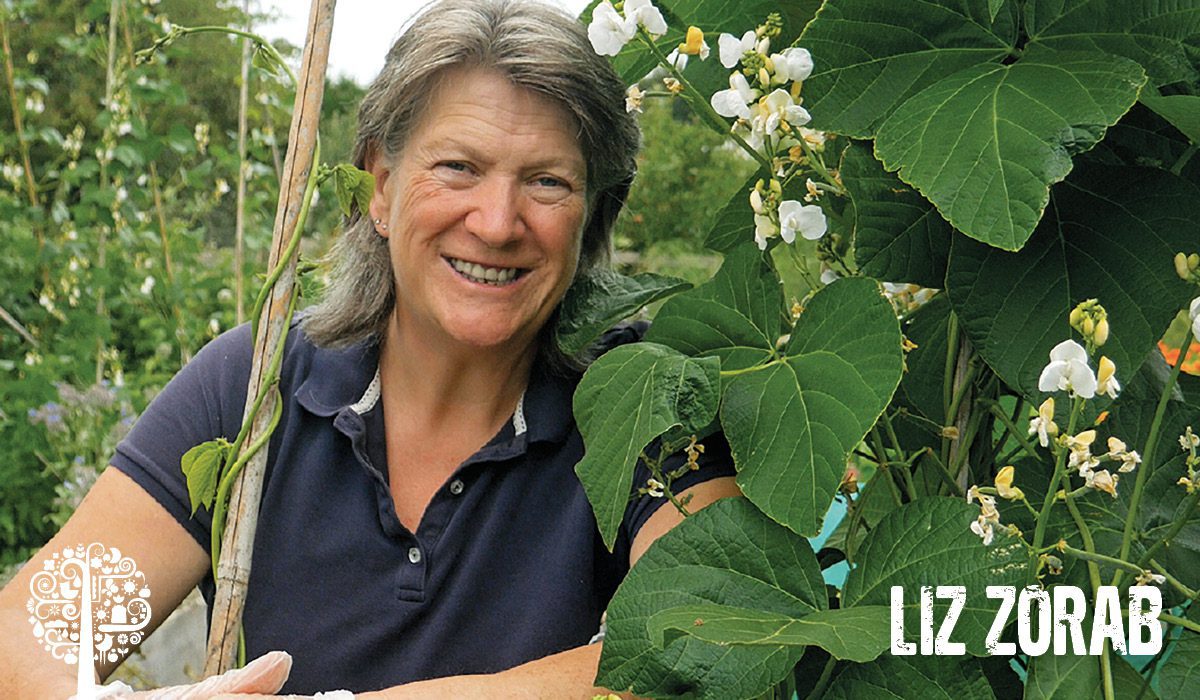
Q: Like you, many of us live in climates with shorter growing periods. Explain how you work with the seasons on a much deeper level than just in the garden.
One of the easiest ways to explain how I now work is to imagine that you live without electric lights and that your working day is as long as the hours of natural light. So, in the winter months, I work for fewer hours and rest more, giving my body a chance to recuperate and rejuvenate. By permitting myself to rest more, I have removed the pressure and stress of the ‘I ought to be doing x, y or z’ type thoughts. I have found that profoundly calming and healing.
Q: From hedgerows and compost to small livestock and no-dig gardening methods, you’ve got a lot of good things going on in your garden. Is there one technique that stands out as more important than the other, or is permaculture really about striking a balance between all of these elements?
It’s not so much that one technique or practice is more important; it is about the beneficial relationships between the elements in our gardens and how they interact. While one technique may be helpful, it only comes alive and gets valuable when interacting with the other elements. The whole design works in harmony because of and with the individual components.
Q: Your book is such an excellent read; one of my favorite parts was finding out how your thriving organic garden has helped improve your mobility and health. The nutritious foods you are growing have even replaced many of the medications you were taking for your chronic illness.
I’m so pleased that you enjoyed Grounded. The combination of fresh air, gentle exercise, being outside and immersed in the garden have been key to my recovery. Replacing highly processed meals with fresh, seasonal fruit and vegetables gives us access to nutrient-dense food without all the additives that might come in pre-made meals. Certainly, we both feel better for having access to an array of fresh foods.
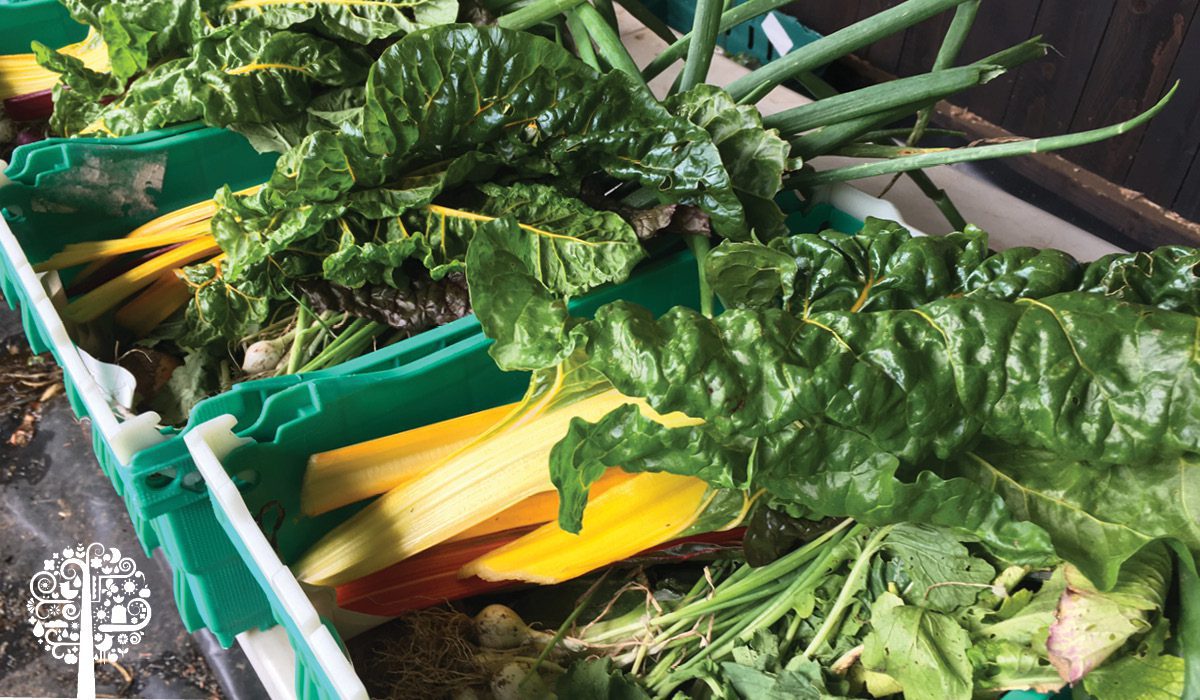
Q: What’s your favorite organic pest control method?
Other than barrier methods, like netting, to exclude pests from reaching plants, I don’t use any human intervention against pests. Instead, I encourage natural predators into the garden so that they do pest control. It may not be an instant fix, but to me, it’s part of the natural progression of creating growing space.
The non-human intervention comes in the form of ducks. We have a flock of Aylesbury ducks (think of Beatrix Potter’s Jemima Puddleduck) that are encouraged to forage in the food forest and vegetable garden at various times of the year. Ducks are natural slug and snail detectives, and in the humid atmosphere of the oceanic temperature climate at Byther Farm, we have an awful lot of gastropods and very happy ducks!
Q: We all make mistakes in the garden. Even you?
I’ve made so many mistakes, more than I can possibly tell you about! But I’ve realized that it is through mistakes that we learn, so some mistakes aren’t necessarily bad. I try to look at mistakes to eliminate what doesn’t work and that brings me one step closer to finding what will work in that particular situation. In so many areas of our lives, finding what works for us is a process of elimination; I feel the same applies in the garden.
Q: It’s good to dream, but at some point, we need to turn our vision into reality. What’s the first step to making that happen?
Share the ideas with someone. It doesn’t need to be somebody who will understand the vision, but I find saying it aloud gives me a way to realize that either my idea is great and I want to get right on with it, or that the idea is impractical, unrealistic or just plain daft. And there have been a great many ideas that have fallen at this stage!
Q: I look at what you were able to create all the while suffering through illness, and it’s incredible. Many of us wouldn’t be up to the task. Can you offer some words of encouragement to those wanting to jump into gardening but not being able to find the energy?
Thank you. I kept the overall picture in my mind throughout creating our gardens but focused on the small, immediate tasks that needed doing. It was a bit like having a mental ‘to-do list’, and I ticked them off with each tiny step. I think it’s very easy to become overwhelmed by the enormity of what we want to do. Breaking each task down into bite-size pieces allows us not just to complete those small tasks but to celebrate every one of them. I find one of the most energizing and motivating feelings is ‘I did that!’
